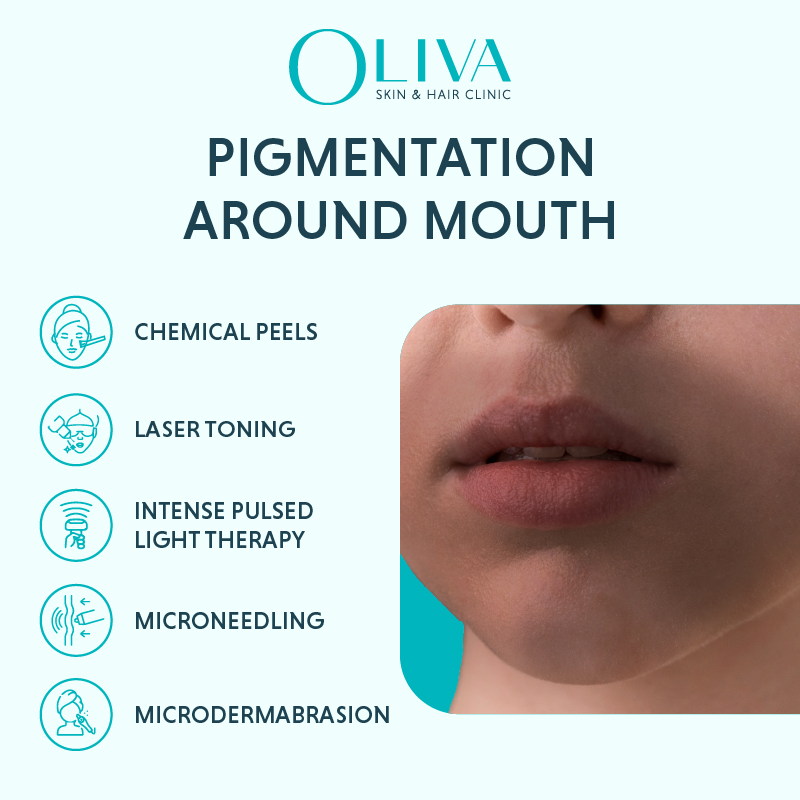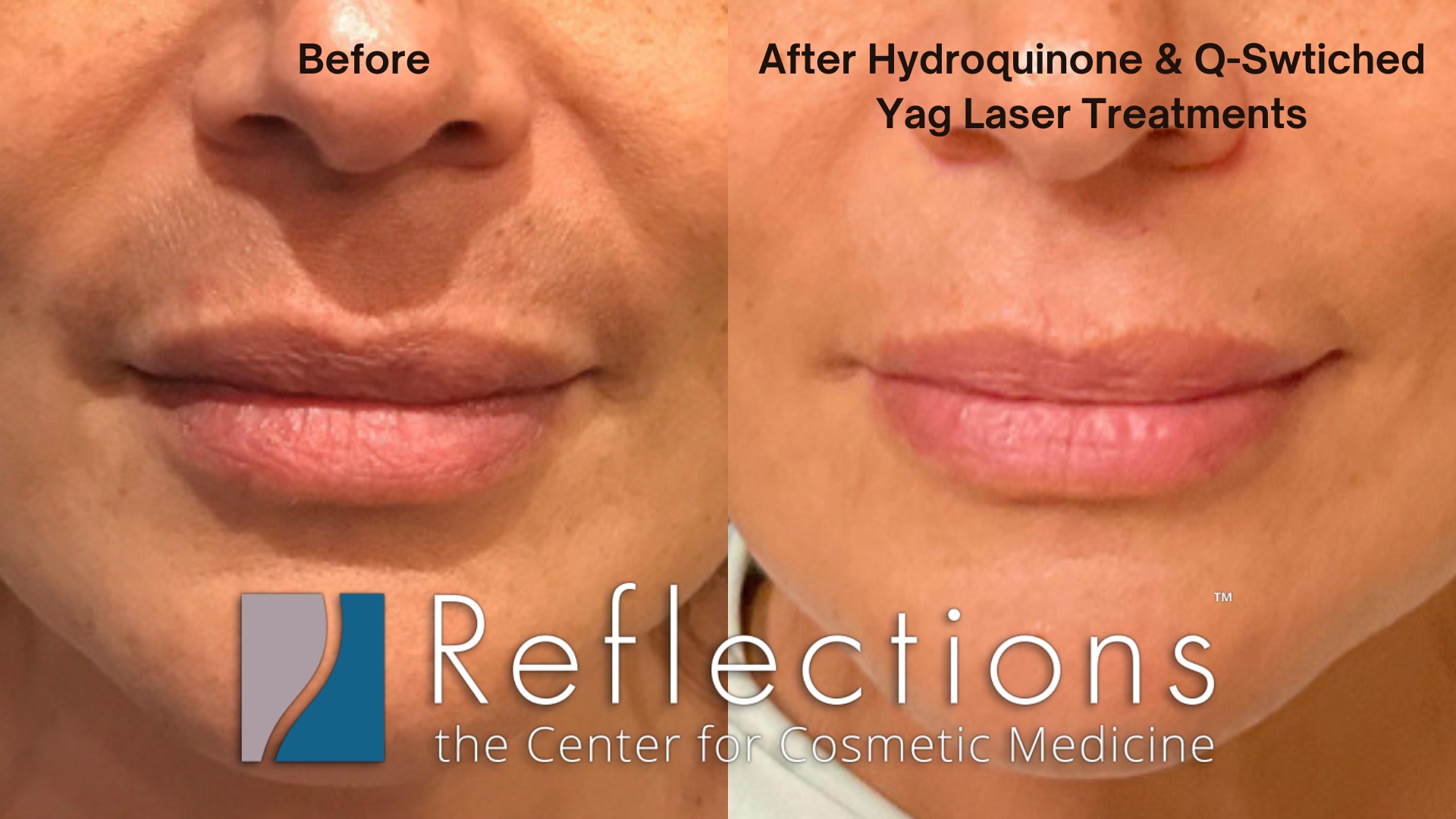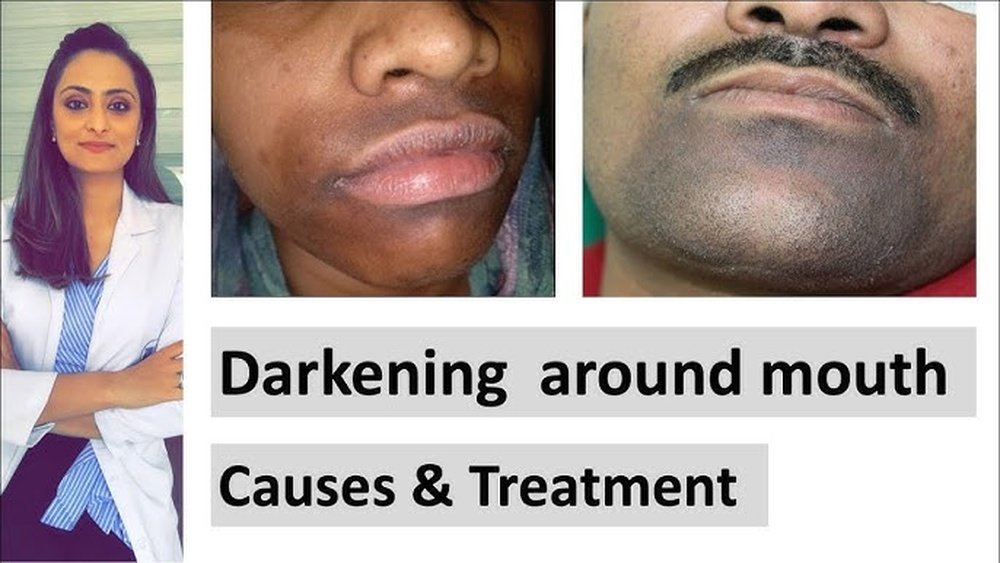Do you notice a dark shadow forming around your mouth and wonder what’s causing it? You’re not alone, and understanding why this happens is the first step to restoring your natural skin tone.
That shadow might be more than just a cosmetic concern—it could be linked to factors like sun exposure, hormonal changes, or even habits you might not realize affect your skin. You’ll discover the common reasons behind dark shadows around the mouth, how everyday actions contribute to it, and when it’s time to seek professional help.
Keep reading to learn what’s really behind that darkening and how you can take control of it.

Credit: www.reddit.com
Common Causes Of Dark Shadows
Dark shadows around the mouth appear due to various skin changes. These shadows often result from increased pigment or damage to the skin. Understanding the common causes helps in managing and preventing this issue. Below are some frequent reasons for dark shadows near the mouth.
Melasma And Hormonal Changes
Melasma causes dark, patchy areas on the skin. Hormonal changes during pregnancy or from birth control pills trigger melasma. The upper lip is a common spot for these symmetrical dark patches. Hormones increase melanin production, the pigment that darkens skin. This condition often worsens with sun exposure.
Post-inflammatory Hyperpigmentation
Skin injuries like acne, burns, or cuts can leave dark spots as they heal. This is called post-inflammatory hyperpigmentation. The skin produces extra pigment to protect itself after inflammation. The mouth area is sensitive and prone to this darkening after irritation or trauma. Avoid picking or rubbing the skin to reduce this risk.
Sun Exposure Effects
Sunlight stimulates melanin production in the skin. UV rays cause the skin around the mouth to darken over time. This darkening is a natural defense against sun damage. Frequent sun exposure without protection leads to uneven skin tone and shadows. Using sunscreen helps prevent these dark patches.

Credit: www.olivaclinic.com
Irritation And Skin Trauma
Irritation and skin trauma around the mouth often cause dark shadows. These shadows appear due to damage or inflammation of the skin. The skin in this area is delicate and reacts quickly to irritation. Small injuries or repeated rubbing can lead to dark spots over time.
Understanding the causes of irritation helps prevent further darkening. Simple habits or product use may irritate the skin. Recognizing these factors allows better care and protection.
Drooling And Saliva Irritation
Drooling can cause the skin around the mouth to become irritated. Saliva contains enzymes that break down skin barriers. Constant wetness softens the skin, making it prone to damage. This irritation triggers inflammation, which may lead to dark shadows. Babies and people with certain health conditions often experience this problem.
Excessive Licking Or Rubbing
Repeatedly licking or rubbing the lips and surrounding skin causes trauma. This action removes natural oils, drying out the skin. Dry skin becomes cracked and inflamed easily. Inflammation triggers melanin production, darkening the affected area. This habit creates a cycle of irritation and pigmentation that worsens over time.
Product-induced Irritation
Some skincare or lip products can irritate the skin around the mouth. Flavored lip balms or scented creams may cause allergic reactions. Harsh ingredients strip the skin’s natural protection. This leads to redness, itching, and inflammation. Continuous irritation from these products causes dark patches to form.
Lifestyle Factors
Lifestyle choices play a key role in the appearance of dark shadows around the mouth. These factors can change your skin’s tone and cause pigmentation. Understanding these habits helps in managing and preventing discoloration.
Smoking And Skin Pigmentation
Smoking leads to the production of harmful chemicals. These chemicals stimulate melanocytes, the cells that create pigment. This causes an increase in melanin around the mouth. The result is a dark shadow or patchy discoloration. Smoking also reduces blood flow, making the skin look dull and uneven.
Nicotine and tar in cigarettes worsen skin damage. They break down collagen, which supports skin structure. This leads to premature aging and uneven skin tone. Over time, smokers often develop darker areas around the lips and mouth.
Habits Affecting Skin Tone
Repeated licking or rubbing of lips can irritate the skin. This irritation triggers more melanin production. The skin becomes darker in response to constant friction. Some flavored lip balms or creams may cause allergic reactions. These reactions can lead to inflammation and dark spots.
Drooling, especially during sleep, also causes irritation. Saliva contains enzymes that can harm delicate skin. This damage leads to darkening around the mouth over time. Being mindful of these habits helps reduce skin discoloration risks.
Medical Conditions Influencing Skin Color
Medical conditions can change skin color around the mouth. These changes often cause dark shadows that may be concerning. Understanding the medical causes helps in managing and treating this issue effectively.
Some health problems affect skin pigment directly. Others cause inflammation or irritation that leads to dark patches. Recognizing these conditions is key to addressing the dark shadow around the mouth.
Underlying Skin Disorders
Certain skin disorders cause discoloration near the mouth. Melasma is one such condition, leading to dark patches due to hormone changes. Eczema and rosacea can also inflame the skin, causing darkening after healing.
Post-inflammatory hyperpigmentation often follows acne or skin injury. The skin produces extra melanin as it repairs itself, leaving dark marks. These disorders create uneven skin tone and shadows around the lips.
Medication And Treatment Side Effects
Some medications affect skin pigmentation as a side effect. Cancer treatments like immune checkpoint inhibitors may darken the skin. Certain antibiotics and hormone therapies can also cause color changes.
Topical steroids used on the face can thin the skin and cause discoloration. Long-term use increases the risk of developing dark patches. Always consult a doctor before starting or stopping any treatment.
Simple Home Remedies
Simple home remedies can help reduce the dark shadow around your mouth. These methods focus on soothing the skin, protecting it from further damage, and gently lightening the area. Consistent care at home often improves skin tone and texture over time. Below are some easy ways to start.
Gentle Skin Care Tips
Use mild cleansers to avoid irritating the skin around your mouth. Avoid harsh scrubs or strong chemicals that can worsen dark patches. Apply a moisturizer suitable for sensitive skin to keep the area hydrated. Pat your skin dry instead of rubbing it. Avoid touching or picking at the darkened skin to prevent further damage.
Sun Protection Strategies
Protect your skin from the sun’s harmful rays every day. Use a broad-spectrum sunscreen with at least SPF 30 on your face, especially around the mouth. Reapply sunscreen every two hours if you stay outdoors. Wear a wide-brimmed hat to shield your face from direct sunlight. Seek shade during peak sun hours to minimize UV exposure.
Natural Lightening Agents
Some natural ingredients may help lighten dark shadows gently. Apply diluted lemon juice with a cotton ball to the affected area for a few minutes before washing off. Aloe vera gel can soothe skin and reduce pigmentation when used regularly. Turmeric mixed with yogurt makes a mild mask that may brighten skin. Use these remedies a few times a week but stop if irritation occurs.
Professional Treatments
Professional treatments offer effective solutions for dark shadows around the mouth. These treatments target the root causes of pigmentation and improve skin tone. They provide faster and more noticeable results compared to home remedies.
Choosing the right treatment depends on the specific cause and skin type. Consulting with a dermatologist ensures safe and personalized care. Many professional options can reduce pigmentation and enhance skin health.
Dermatological Procedures
Dermatological procedures can reduce dark pigmentation effectively. Chemical peels remove the top skin layer, revealing fresher skin beneath. Laser therapy targets melanin and breaks down pigment deposits. Microdermabrasion gently exfoliates skin, improving texture and color. These treatments require professional supervision to avoid side effects. Multiple sessions may be necessary for best results.
When To Consult A Specialist
Consult a specialist if dark shadows persist or worsen over time. Seek help if home treatments fail after several weeks. Sudden changes in pigmentation or uneven skin color need prompt evaluation. A dermatologist can diagnose underlying conditions causing pigmentation. Early consultation helps prevent complications and guides effective treatment plans.

Credit: www.reflectionscenter.com
Frequently Asked Questions
Why Do I Have A Dark Shadow Around My Mouth?
A dark shadow around your mouth often results from melasma, sun exposure, hormonal changes, skin irritation, or smoking. Skin trauma and certain medications also cause hyperpigmentation. Consult a dermatologist for accurate diagnosis and treatment options.
Which Vitamin Deficiency Causes Pigmentation Around The Mouth?
Vitamin B12 deficiency often causes pigmentation around the mouth, leading to darkened skin patches.
How To Fix A Dark Circle Around Your Mouth?
Use sunscreen daily to prevent sun damage. Apply vitamin C or niacinamide creams to lighten dark circles. Avoid licking or irritating the area. Stay hydrated and quit smoking. Consult a dermatologist for persistent or severe pigmentation issues.
What Causes Dark Shadows Around The Mouth?
Dark shadows around the mouth result from melasma, sun exposure, hormonal changes, skin trauma, and irritation. Habits like smoking or lip licking also contribute to hyperpigmentation in this area.
Conclusion
Dark shadows around the mouth can result from many causes. Hormones, sun, and skin irritation often play key roles. Some habits like licking lips or smoking may worsen it. Certain medical conditions or treatments can also affect skin color. Treating the cause helps reduce dark patches.
Protect your skin from sun and avoid irritants. Consult a doctor if the shadow worries you or worsens. Taking care early supports healthier, clearer skin.
 Skip to content
Skip to content 